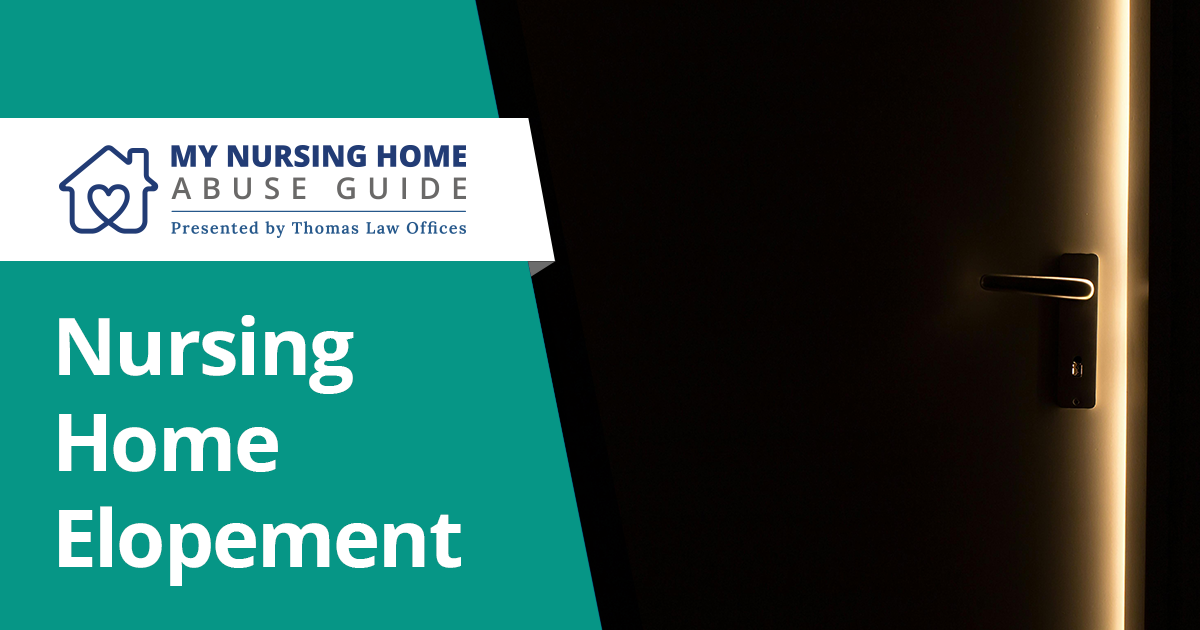Your Guide to Nursing Home Abuse & Prevention
Millions of elderly adults live in nursing home facilities.
Every one of them deserves to feel safe, protected, and respected.
Millions of elderly adults live in nursing home facilities.
Every one of them deserves to feel safe, protected, and respected.

When you first see the word “elopement,” you might initially envision a wedding. However, when you see the term used in conjunction with a nursing home, it may confuse you. This word used in this context refers to a resident intentionally wandering off from their assisted living facility.
Elopement in nursing homes is a particularly concerning issue, so keep reading where we’ll explain why it occurs and why it’s particularly dangerous when it does. We’ll also share which residents are most vulnerable to doing this so you can perhaps take preventative measures to ensure it doesn’t happen to someone close to you.
Individuals with memory disorders, such as Alzheimer’s disease, are most likely to become confused and leave the facility where they reside to venture elsewhere. However, those with cognitive impairments, because they previously suffered traumatic brain injuries and people with mental health concerns, such as schizophrenia or multiple personality disorders, may also be prone to elopement in nursing homes.
The potential harm that your resident loved one may face if they wander from a nursing home is significant. It puts them in danger of:
We’ve only mentioned a few examples of ways eloping can prove dangerous. The sky’s, unfortunately, the limit in terms of dangers this type of wandering poses.
The truth is that many nursing home residents try wandering off from the nursing homes where they live many times before they’re ultimately successful. So, whether you’re planning to place a loved one in a care facility like this or they’re already living there, it can be helpful to ask staff what safety measures they employ to ensure elopement in nursing homes like theirs doesn’t happen to your loved one.
Inquiring about these safety protocols will give you some insight into how to best protect your loved one. However, don’t let the presence of a surveillance camera system, security guard, or ample staff give you a false sense of security. They’re certainly not perfect all the time. Their failure to prevent elopement could qualify as a type of nursing home resident neglect.
If you aren’t comfortable with a nursing home’s safety protocol, consider looking into technology to help you better keep track of your loved one, whether your jurisdiction allows you to install in-room cameras, alert devices warning you if they venture beyond a certain point or at least that aids you in tracking their location, etc.
This website was created and is maintained by the legal team at Thomas Law Offices. Our attorneys are experienced in a wide variety of nursing home abuse and neglect cases and represent clients on a nationwide level. Call us or fill out the form to the right to tell us about your potential case. We will get back to you as quickly as possible.
866-351-2504